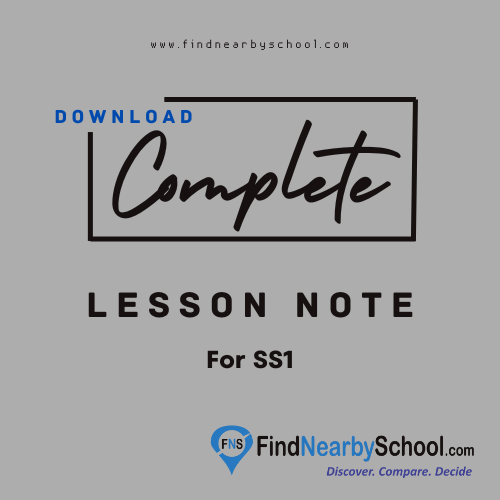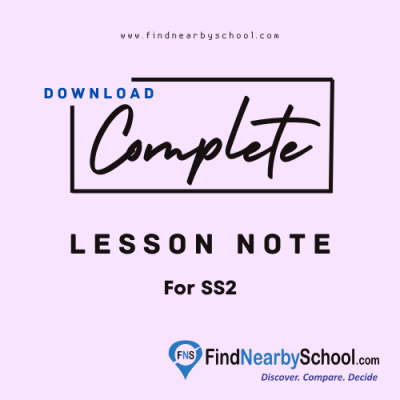Description
SS1 Government Scheme of Work for First, Second and Third Term: These lesson notes cover the following topics.
First Term:
1. The Meaning and the Scope of the Subject Matter: Government
i) Government as an Institution of the State
ii) Government as an Art of Governing
iii) Government as an Academic Field of Study
2. Features/Characteristics of government;
i) Features of Government
ii) Functions of Government
iii) Why we Study Government
3. Basic Concepts of Government:
i) Power
ii) Authority
4. i) Legitimacy ii) Sovereignty iii) Democracy
5. i) Communalism ii) Feudalism
6. i) Socialism (ii) Communism (iii) Capitalism
7. i) Fascism ii) Nazism iii) Totalitarianism
8. State and Nation; Political Culture
9. Political Socialization
10. Characteristics of government: (i) Unitary government (ii) Federal government.
11. Revision/examination
Second Term:
1. TYPES AND CHARACTERISTICS OF GOVERNMENT: Presidential System of Government; Parliamentary System of Government.
2. Nazism.
3. Monarchy- Definition, Forms, Merits and Demerits, Features: Republican Government-Meaning, Features: Military Government- Features, Reasons for Military Intervention, Differences Between Republican and Monarchy.
4. Constitution: Definition, Sources, Features, Types: Written, Unwritten, Rigid, Flexible, Unitary, Federal and Confederal with Merits and Demerits of Each Type.
5. Structure and Organization of Government: Legislature; Meaning, Functions, Types, Merits and Demerits of Each Type, the Concept of Parliamentary Supremacy and Its Limitations; Bills- Meaning, Types, Procedure on How Bills Become Law.
6. Executive- Meaning, Functions and Types
Judiciary- Meaning, Functions and Independence of the Judiciary
7. Basic Principles of Government: Rule of Law; Definition, Principles, Limitations to Its Application, Factors that Ensure Its Operation.
8. Separation of Powers- Meaning, Merits and Demerits, Its Operation in Presidential and Parliamentary systems of government; Checks and balances- meaning , merits and demerits.
9. Representative Government- Definition, Features, Conditions for Its Establishment, Merits and Demerits; Political Participation- Meaning, Forms, Purposes, Factors Affecting Political Participation.
10. Centralization- Meaning, Reasons for Its Adoption, Merits and Demerits; Decentralization- Merits, Types, Merits and Demerits.
11. Delegated Legislation- Definition, Type’s Reasons for Delegated Legislation, Demerits, Control of Delegated Legislation.
12. Revision
13. Examination
Third Term:
1. I ) Revision and Political participation:
– Meaning, forms, purpose, factors affecting
Political participation.
II) Centralization and decentralization:
– Reasons for its adoption, types, merits and
Demerits.
2. Delegated Legislation:
– Definition, types and reasons
3. Delegated legislation:
– Merits and demerits; control of delegated legislation.
4. Citizenship
– Meaning, ways of acquiring Citizenship
5 & 6 Citizenship:
– ways of losing citizenship;
– Rights of a citizen: meaning, duties and
Obligation of a citizen in a state.
– Ways of safeguarding citizens’ rights
– Limitations to a citizen’s rights.
– Difference between a citizen and non-citizen
7 political parties :
– Definition, types, features, functions.
– party manifestoes and its importance
8 Party system :
– Definition, types, merits and demerits.
9 Pressure groups:
– Meaning, types, functions, factors that can aid its effective operations.
– Mode of its operation
10 Factors working against the success of
pressure Groups:
ii) Danger posed by its activities
iii) Comparison between pressure group and
political party.
11 Revision
12 & 13 Examination




Reviews
There are no reviews yet.